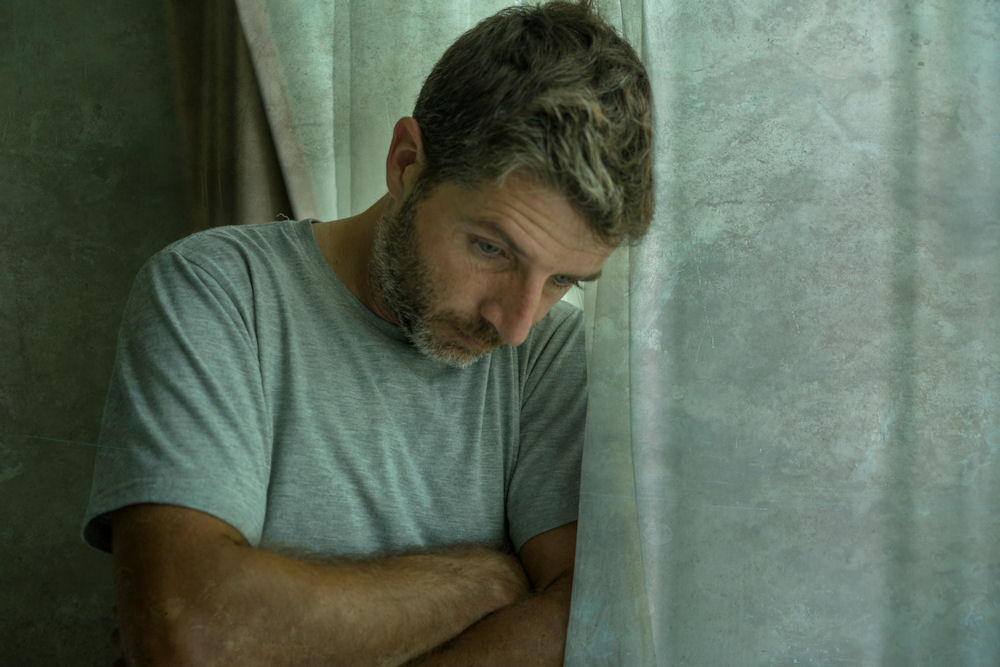
The men’s mental health crisis is an ever-increasing, often silent problem. Silent in the sense that an overwhelming number of men conceal these battles. Sadly, the unfair and untrue stigma surrounding men and mental health is the reason many men opt to suffer in silence.
However, bottling these troubles inflicts deeper emotional, mental, and physical stress that ends up manifesting itself in self-harming ways. In honor of May’s Mental Health Awareness Month, here are important details to watch for, including symptoms, risks, and challenges.
Someone may have a mental health struggle and not even know it. Please be aware and seek help if you or a loved one exhibits any or all of the following symptoms.
Mental health conditions are usually accompanied by sudden mood swings that can change on a dime for seemingly no reason. Many personality, anxiety, and depression disorders have very specific triggers that can turn a good mood into a bad one. It’s important to take notice of anyone, including yourself, whose countenance disturbingly shifts without any apparent rhyme or reason. If this characteristic describes you or someone you love, seek professional assessment to get a proper diagnosis.
This symptom is especially severe and should not go unchecked without seeking immediate treatment. Any brief or extended ponderings of suicidal thoughts should be met with swift and immediate action. We can help you reverse these harmful thought processes through personalized mental health training. Thanks to our unparalleled mental health experts, you don’t have to suffer the suicidal tug-of-war with these harmful thought cycles.
Separate from suicidal thoughts or tendencies, feelings or thoughts of hopelessness is the preeminent thought or feeling that can ultimately lead to suicidal tendencies. Once any feeling of hopelessness or depression arises, it’s important to treat this before it progresses into suicidal tendencies. Getting help at this stage of your mental health struggle maximizes efficacy potential and therapeutic responsiveness.
If you or a loved one exhibits anxiety symptoms or paranoia semi-frequently, it may be indicative of a mental illness. Other indications of high anxiety levels include mild to severe involuntary tremors, high blood pressure, and heart rate. Eventually, such symptoms and mental health conditions will lead to physical health issues like cardiovascular or respiratory problems if left untreated. Don’t let elevated stress levels and anxiety disorders take a toll on your mental and physical health. Reach out to us now to get immediate symptom relief
If you or a loved one is easily angered over minor infractions, it may be a deep-rooted mental condition. The individual may even recognize their anger problem and not understand the root cause, making it even more frustrating. We have the answers to your frustrations. Our treatment team will help you identify the root of your irritability and help you effectively deal with the underlying cause.

There are different challenges men face than women due to gender-based discrepancies in treatment approaches, focuses, and public reception. Golden Gate Recovery places a strong emphasis on meeting all of the following challenges through our revolutionary treatment methods.
A primary contributor to the men’s mental health crisis revolves around the stigma challenges men face in treatment. Stigma suggests that ‘real’ men can handle their challenges without external help, and any failure to do so is less “manly”. Not only is this untrue, but the opposite is true. It takes a truly strong man to accept help for mental health challenges that are outside of their control.
Unlike their female counterparts, Male mental health patients often find it more difficult to open up. It’s especially difficult to open up to a therapist they don’t know when they have a hard enough time opening up to loved ones. We break these communication barriers by getting to know our patients on a personal level without judgment. We encourage, we motivate, and we empathize with your needs with the utmost sincerity.
Statistics conclude that males above the age of 12 turn to substances at almost double the rate of females in the same age bracket. In terms of mental health coping mechanisms, it’s very common for men to cope with such issues through substance abuse. Many who enter mental health therapy also have co-occurring substance use disorders. In such cases, dual-diagnosis therapy is the best option for people struggling with co-occurring mental and addiction disorders.
This point is so much more than an inability to open up. Some men can be so overly hard on themselves to the point where they feel accepting help equals weakness. On the contrary, as alluded to earlier, admitting you need help is the strongest decision you can make. Unfortunately, the perception of what’s tough and what isn’t has been stigmatized, preventing many men from getting proper treatment.
Statistics confirm that men are less likely to seek the treatment they need than their female counterparts. This adds additional challenges with men refusing to seek therapy stemming from what they deem as threats to their masculinity. The reason for these self-preventing hurdles includes, but is not limited to, pride, lack of self-esteem, or shame in recovery. Most dangerously, the individual may even be in denial that they need help due to the aforementioned factors.

Studies find there are specific mental health conditions that men are more prone to than others. Seek a mental health assessment to diagnose any of the following common mental health conditions.
Addiction is more than a behavior or habit. It’s an official mental health condition that alters the mind’s genetic makeup. As we touched on earlier, men are more likely to turn to addictive substances as a coping mechanism. This is the case not just for mental health problems, but for other hardships as well. The only way to repair these addiction-induced mental imbalances is to get professional therapy.
Though researchers find a greater percentage of women suffer depression than men, a staggering 80 percent of suicides are reportedly male. This is a troubling revelation of the dire state of the men’s mental health crisis and the failing level of care. These suicide discrepancies, despite having significantly lower depression rates, are due to a lack of therapeutic attentiveness and men suffering silently. In light of May’s Mental Health Awareness Month, it’s important to encourage men with mental problems to share their struggles.
Personality disorders like bipolar disorder, PTSD, OCD, and others are very prevalent among men. In addition, any underlying childhood, adult, or current trauma exacerbates the risk of acquiring these personality disorders. The worst part is that, since men are more unlikely to seek help, many of these conditions remain undiagnosed and undocumented. Our treatment team is standing by to help you diagnose and pave your most effective personalized road to mental healing.

A variety of gender-specific approaches are necessary since men and women think and respond differently to various treatment methods. Depending on your condition and needs, a specialist will place you in any of the following programs based on your assessment results.

Curbing the men’s mental health crisis in the world begins with you. We understand the unique challenges men face. It’s the reason we lead the charge in attacking the men’s mental health crisis that has become a global epidemic.
We exert our greatest efforts, tools, and top-quality tactics to ensure men get the most attentive and thorough care they deserve. You’ll be one of the many who’ve found mental healing made possible by our thorough treatment methods. Reach out today to find your healing solution.
Get confidential help! Call Us Now for:

Golden Gate Recovery is a grass roots organization created by men in long term recovery with a simple mission: to continue strengthening our therapeutic and peer led community toward the goal of long term recovery for each client.